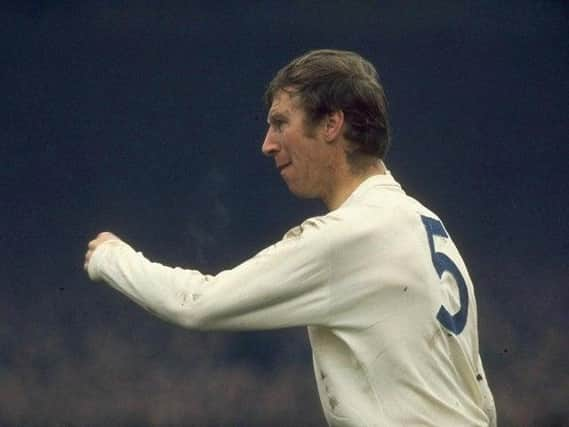Why Leeds United's late Jack Charlton and Barnsley-born Michael Parkinson make me nostalgic - Anthony Clavane


BBC Two’s tribute to the Leeds United icon, charting his decline with dementia in the final year of his life, was moving, sad, funny, thought-provoking and, ultimately, heart-breaking.
It has already been hailed as a masterpiece in storytelling. Whether it be his strained relationship with brother Bobby, his smile on recognising his beloved protégé Paul McGrath, his reawakening of the Irish footballing soul, his interrogation by an 11-year-old lad – “What do you think of the English press saying you’re a bunch of mercenaries playing for money?” – or his tear-jerking rendition of Blaydon Races, this intimate portrayal of Big Jack made me feel nostalgic for a lost, never-to-be-repeated, era.
Advertisement
Hide AdAdvertisement
Hide AdStrangely, of all those moments, the one which made me feel most nostalgic was a blink-and-you’ll-miss-it clip from the early 1970s.
“I’m a destroyer, a batterer, a fouler,” he tells the chat show host.
The audience applaud. “What are you all clapping for?” he responds, with that unmistakable glint in his eye.
The chat show host was, of course, Michael Parkinson. Another affable, plain-speaking, tell-it-how-it-is, working-class-made-good northerner.
Advertisement
Hide AdAdvertisement
Hide AdBoth men were born into mining backgrounds in 1935 and both sprang to fame in an age of increasing social mobility.
As Parkinson’s son Mike said in an interview last year: “He came from a working-class background – he left school with two O levels. And to drive himself by his own ability through national newspapers, full of Oxbridge graduates, and get into television... He was part of that generation that kicked over the barricades.”
What an inspiring generation that was. Parky hosted over 650 shows in a – to use one of his favourite words – “remarkable” career. Watching that brief clip with Big Jack reminded me what a brilliant interviewer he was.
So it is excellent news that the Beeb have commissioned a retrospective “special” to mark the 50th anniversary of his legendary chat show.
Advertisement
Hide AdAdvertisement
Hide AdParkinson at 50 will probably not include the Charlton interview. The great man, after all, is spoilt for choice; he interviewed more than 2,000 famous faces. For three decades he chatted with some of the most important people of the late 20th century.
What made the show so consistently good over such a long period of time? Perhaps the stars were simply bigger, and more interesting, back then.
Who can compare with Billy Connolly, Muhammad Ali, George Best, Orson Welles, Jack Lemmon and Diana Rigg?
But it was more to do, in my opinion, with the way the shy, self-deprecating host coaxed revelations from these stars. From the moment his jazz signature theme tune was played, by a live band, to the shy, self-deprecating farewell at the end, he was always looking – as he once put it – for “a story, a life”.
Advertisement
Hide AdAdvertisement
Hide AdIt is hard to believe that in our C-list-celebrity-saturated era, when a series without a reality TV star would no doubt provoke the collapse of popular culture as we know it, that he pioneered a new intelligent-and-entertaining format, allowing his A-list celebrity guests the time and space to tell their own story, in their own inimitable style.
The interview with the mathematician and historian of science Dr Jacob Bronowski, of The Ascent of Man fame, ran for a whole hour. Unlike Piers Morgan, the Parkinson interviews were never about the interviewer.
There were never too many stars hustling for attention on an overcrowded sofa – in fact there were just chairs – unlike the intermittently entertaining Graham Norton Show.
Connolly, Ali, Best, Welles, Lemmon, Rigg et al hardly ever had a book, TV show or film to plug. They were never rushed or aggressively prodded. Or asked to recount coarse anecdotes.
Advertisement
Hide AdAdvertisement
Hide AdOccasionally, of course, there would be a confrontation – Parky’s encounter with Rod Hull’s emu springs to mind – but this just added to the show’s edge.
The franker the answers, the better the show.
Those who came before him (Simon Dee and Eamonn Andrews), or were his rivals (Russell Harty, David Frost and Terry Wogan), or came after him (Norton and Jonathan Ross) have all got their good and bad points.
But Parky was, simply, the crème de la crème of interviewers.